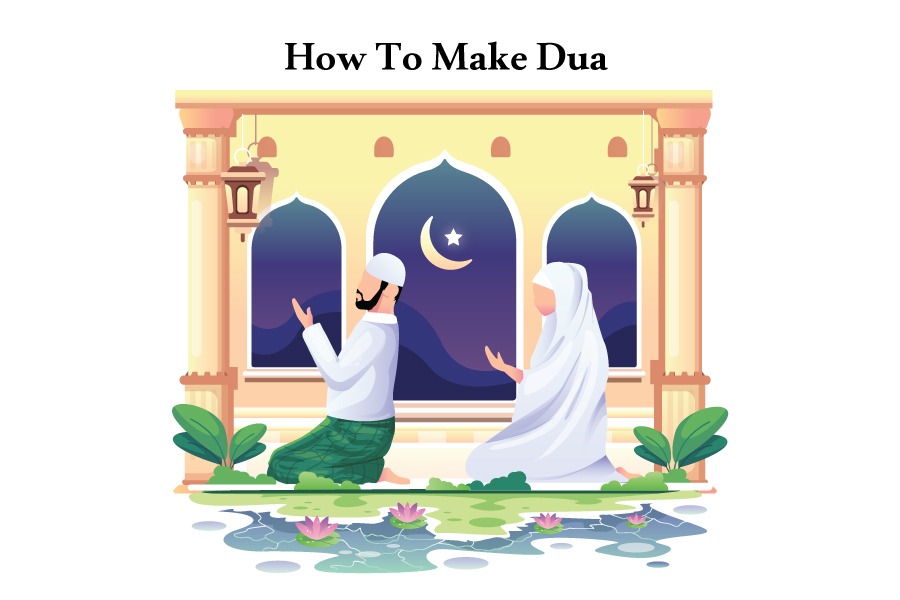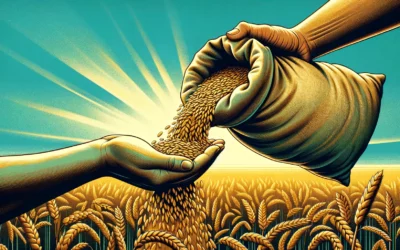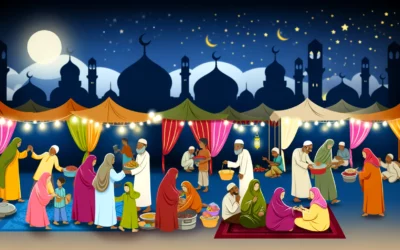Introduction
Dua in Islam is like having a heart-to-heart chat with the universe’s most caring BFF, who also happens to be the Creator of everything! It’s not your typical wishlist; it’s more like a spiritual hotline to Allah. You can ask for help or guidance, or say a big “thanks for the awesome day.” Dua is this super cool connection where you can talk to God about anything, whether taking a test, dealing with a tough day, or sharing your dreams. It’s like sending a message to the heavens, knowing someone up there is always listening. So, imagine your wishes taking a cosmic route and landing in the hands of the ultimate best friend, who has your back no matter what – that’s dua in Islam!
The Term Itself!
The term dua in Islam is an Arabic word meaning supplication, invocation, and solicitation. As indicated by al-Khattābī, dua in Islam is calling to Allah SWT for help. It is a steady two-way correspondence between the primary (individual) and his Rabb (Master), requesting the All-powerful’s help throughout the various periods of life. In different terms, it is a type of Zikrullah (recognition of Allah SWT) and Ibadah (worship).
Dua in Islam is likewise a sign of one’s closeness with Allah SWT:
Allah said in the Quran,
وَإِذَا سَأَلَكَ عِبَادِى عَنِّى فَإِنِّى قَرِيبٌ ۖ أُجِيبُ دَعْوَةَ ٱلدَّاعِ إِذَا دَعَانِ ۖ فَلْيَسْتَجِيبُوا۟ لِى وَلْيُؤْمِنُوا۟ بِى لَعَلَّهُمْ يَرْشُدُونَ
And when My servants ask you, [O Muhammad], concerning Me – indeed I am near. I respond to the invocation of the supplicant when he calls upon Me. So let them respond to Me [by obedience] and believe in Me that they may be [rightly] guided.
(AlQuran 2:186]
How to Praise Allah SWT When Making a Dua in Islam
The Sunnah of Prophet Muhammad (Saw) begins the dua in Islam by reciting a verse reflecting the praises of Allah.
All praise is due to You, befitting Your magnificence, kingdom, and splendor, which has no bounds…I, as your worshipper and servant, cannot utter words of admiration as befits your magnificence.
Also, call Allah SWT using His (SWT) name. Allah SWT has 99 names, and each name can be used to reach Him (SWT) as required. For example, you can call Him (SWT) Al-Wakil for help. On the other hand, when asking for forgiveness, call Allah SWT al-Ghafur.
Etiquettes for making a dua in Islam
Dua can also be made according to halal needs and desires in any language. There is a guided method (adab) of the Prophet Muhammad (PBUH) to prepare you mentally and spiritually, which are:
Perform wudu
However, it is not obligatory to perform bathing (wudu) prior to making dua in Islam; Allah SWT has given you the freedom to implore anytime during the day. Being the Islamic method of cleaning for the body and soul, wudu gets you a good outlook and sets you up before you address Allah SWT.
Abu Musa Al-Ash’ari (RA) portrayed that the Prophet Muhammad (PBUH), after the skirmish of Hunain, called for water, performed wudu, then, at that point, lifted his hands and said: “O Allah SWT! Pardon Ubaid Abi Amir!
(Sahih Bukhari)
Face the Qiblah
Like performing wudu, confronting the Qiblah while making dua in Islam is not obligatory. In any case, it is the Sunnah of Prophet Muhammad (PBUH).
Abdullah canister Zaid (RA) portrayed, “Allah’s Courier (PBUH) went out to this Musalla (imploring spot) to offer the request of Istisqa (a request for downpour). He conjured Allah for a downpour, confronted the Qiblah, and turned his shroud back to front… .”
Start by Priasing Allah (SWT)
“The Prophet (SAW) said: ‘When one of you performs Salat or Dua then, at that point, let him start by offering thanks to Allah and applauding Him… ‘”
[Jami at-Tirmidhi]
Send supplications upon the Prophet (SAW)
It is important to send supplications upon the Prophet Muhammad (SAW)
Then, let him send Salat upon the Prophet (SAW), then let him petition from that point forward, anything he wishes.”
Mention Allah’s beautiful traits and attributes (SWT) involving the 99 names in a way that connects with your duas.
Allah has the Most Lovely name. So call upon Him by them.
Lift your hands
Lifting your hands while making dua in Islam has a lovely importance behind it. The demonstration depicts to Allah SWT that you are calling upon Him, mentioning and imploring Him to satisfy your desires. Various mates have detailed that it was a Sunnah of Prophet Muhammad (PBUH) to lift his hands while making dua.
The messnger (PBUH) of Allah SWT said,
“To be sure your Master – Favored and All-powerful is He – is Timid and Generally Liberal. He is timid when His worker lifts his hands to Him (in dua) to dismiss them vacant.”
(Abu Dawud)
Have faith
Have faith that your dua will be acknowledged and Allah will answer somehow:
Ibn al-Jawzi (rh) said,
“I consider part of the test is the point at which a devotee petitions and gets no reaction, and he rehashes the dua for quite a while and sees no indication of a reaction. He ought to understand that this is a test and needs persistence.”
Make dua for others
Abu Dharr announced that Allah’s messenger (SAW) said:
There is no accepting worker who petitions for his sibling despite his good faith (in his nonattendance) that the Holy messengers do not say: ‘The equivalent be for you as well.
[Sahih Muslim]
Make dua frequently
Make Dua frequently and not simply in the midst of hardship:
Abu Hurairah (RA) portrayed: The Courier of Allah (SAW) said: “Whoever wishes that Allah would answer him during difficulty and misery, then let him ask copiously when calm.”
[Jami at-Tirmidhi]

















